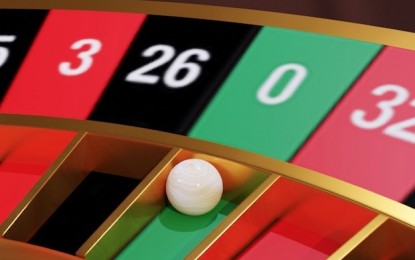Macau downturn culled 40 pct of junkets: SJM CFO
Nov 19, 2015 Newsdesk Updates – Macao Gaming Show 2015
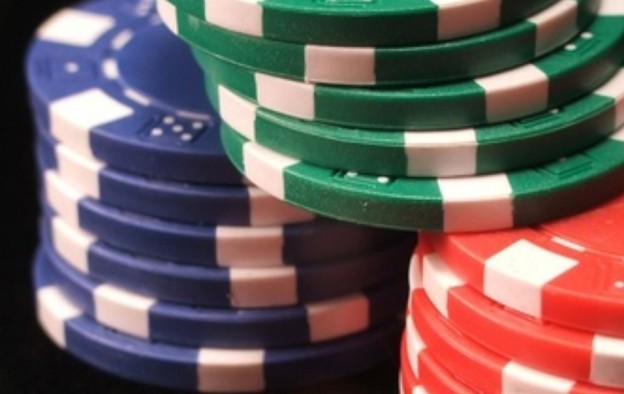
About 40 percent of the VIP gaming promoters – commonly known as junkets – that had been licensed by the Macau government prior to the downturn in high roller gambling, are no longer active in the local casino market, said a senior executive from one of the city’s six operators.
“The number of junkets – who are responsible for 80 to 90 percent of the VIP business in Macau – their ranks have been thinned out. Out of around 235 licensed junkets, maybe 140 or fewer are in operation today. So nobody is willing to say ‘Okay, we have turned the corner on VIP’,” said Robert McBain, chief financial officer of SJM Holdings Ltd.
He was speaking during a conference panel on the second day of the Macao Gaming Show 2015 at the Venetian Macao. It was moderated by Karen Tang, a senior analyst for Deutsche Bank AG who covers the gaming market.
Mr McBain was responding to a question from Ms Tang about the current challenges in the Macau gaming market.
“The VIP market is still not finding the bottom yet – or I would phrase it as ‘I’m not ready to call the bottom’… and I think you would find that for most of the participants in the industry,” added the executive.
The number of licensed gaming promoters in Macau fell from 217 in January 2014 to just 183 in January this year – a decline of 16 percent – according to figures from the city’s gaming regulator. The figures include both companies and individuals licensed as junkets.
Macau’s casino GGR for October fell 28.4 percent year-on-year to MOP20.06 billion (US$2.5 billion), according to official data. It was the 17th straight month of GGR retreat measured year-on-year but the best monthly tally for the industry since May. Analysts have said the decline is led by the VIP segment.
Nonetheless Ms Tang had noted in a report on Tuesday that there were also challenges in getting the more profitable mass-market segment to make up the difference – this segment is also declining, albeit at a slower rate than VIP. She said Studio City, a US$3.2-billion casino resort on Cotai that opened on October 27 without any junket rooms, had – based on month-to-date industry returns – “failed to grow the market”.
“The Macau gaming market is doing in gaming revenue what it was doing in 2010,” said Mr McBain on the Wednesday panel. “You could say we have lost five years of growth. Even if we see some modest growth early next year, we are kind of crawling our way back to 2011 [levels],” he added.
“That’s the challenge we are facing with most of the investment projects that were undertaken during the boom in 2012 and 2013,” stated Mr McBain. His firm is already publicly committed to spending HKD30 billion (US$3.9 billion) on a new Cotai project called Lisboa Palace, due to be completed at the end of 2017. Mr McBain noted however that while the company was likely to need bank financing for Lisboa Palace, it had HKD17 billion in net cash at the end of the third quarter.
Some investment analysts have said they expect SJM Holdings to lose share of casino gross gaming revenue as its five competitors all open new Cotai schemes ahead of SJM Holdings.
But Mr McBain indicated it was not special pleading to suggest that the traditional downtown area of Macau gaming would be resilient – citing the fact that most tourists still arrive either via the mainland’s land border with the Macau peninsula at Gongbei, or at the Macau Maritime Ferry Terminal at the Outer Harbour on the peninsula. SJM Holdings’ two flagship properties – the old Lisboa and the Grand Lisboa casino hotels – are both located in the downtown area of Macau.
A new ferry terminal at Taipa, designed to serve the Cotai market, has had long delays and currently is not scheduled to open until mid-2016 at the earliest. Another crossing point, the Lotus Bridge linking Cotai with the mainland’s Hengqin Island, is not yet fully integrated with the mainland’s long-distance bus and train networks and is still only lightly used.
“I don’t think you need to worry about the [Macau] peninsula casinos drifting down [to a situation akin] to the downtown Las Vegas casinos,” said Mr McBain, referring to how the gaming and tourism hub of Las Vegas shifted from the traditional casino area to the Las Vegas Strip, starting in the 1980s.
“Sometimes people make that analogy with the two Las Vegas markets… I think we [on Macau peninsula] will always have the strongest portion of the day trip market, because of the entry points to Macau. And we [the peninsula properties] do have a lot of the new capital expenditure, and nice properties on the Macau peninsula at all different price points,” added the SJM Holdings CFO.
Non-Chinese players
Asked where Macau and other Asian casino markets would get their high value players if the Chinese authorities wished to see a medium- or long-term moderation in the amount of money crossing the country’s border for use in high stakes gambling – as some analysts have suggested – Mr McBain commented: “We do have interests [in players] beyond mainland China. We have been recruiting [gaming industry professionals] that specialise in Southeast Asia and in Northern Asia.”
Mr McBain also referred to an official policy affecting Macau that the city’s Chief Executive Fernando Chui Sai On mentioned in the Policy Address for Fiscal Year 2016 delivered on Tuesday. It is to turn Macau into a “World Centre of Tourism and Leisure”.
“Nobody has a precise interpretation of the wording in the [People’s Republic’s] 12th Five-Year Plan which mandates Macau to become the ‘World Centre of Tourism and Leisure’. How much nuance is in that word ‘world’? Does that mean we should be reaching out beyond mainland China for more of our bread and butter? I think it does. But I don’t see anybody [officials] scoring the players like a mahjong game… if the player’s non-Chinese.”
Mr McBain added some comments relating to the Macau government’s “mid-term review” of the gaming industry, which officials say will have some bearing on discussions about possible refreshment or extension of the gaming rights of the six operators when the current permissions expire – in SJM Holdings’ case in the year 2020.
“I don’t say it’s a precise system of rewards. Maybe when this interim review comes out it might shed some light,” said Mr McBain. “It should be quite soon that some kind of summary comes out. It might shed some light on the [Macau] government’s value system [for the gaming industry], because they certainly asked us a lot of questions [during the mid-term review process] about the gambling population as well as investment activities and the local policies on hiring.”
Related articles
-
 Emperor Ent expects annual profit as...
Emperor Ent expects annual profit as...Apr 24, 2024
-
 Macau April GGR at least 75pct April...
Macau April GGR at least 75pct April...Apr 10, 2024
More news
-
 Macau downturn presents new...
Macau downturn presents new...Nov 19, 2015
-
 Ready to rumble with Paltronics’...
Ready to rumble with Paltronics’...Nov 19, 2015
Latest News
Apr 25, 2024
Malaysia’s political leader, Prime Minister Anwar Ibrahim, described on Thursday as “a lie” and “not true” a Bloomberg report that the Malaysian government was mulling a second casino for...Sign up to our FREE Newsletter
 (Click here for more)
(Click here for more)
Pick of the Day
"The travel demand for May Golden Week looks solid to us, which means good foot traffic in Macau"
Jeffrey Kiang
Analyst at brokerage CLSA
Most Popular
 Malaysia govt mulls nation’s 2nd casino says report April 25, 2024
Malaysia govt mulls nation’s 2nd casino says report April 25, 2024  Some Macau casino resort hotels flag no beds for May hols April 23, 2024
Some Macau casino resort hotels flag no beds for May hols April 23, 2024 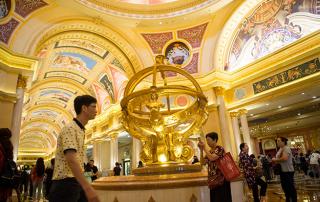 LVS group refinancing likely hailed by markets: CBRE April 23, 2024
LVS group refinancing likely hailed by markets: CBRE April 23, 2024 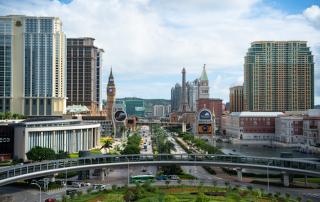 Labour hols Macau GGR, room rates likely below 2019: MS April 24, 2024
Labour hols Macau GGR, room rates likely below 2019: MS April 24, 2024 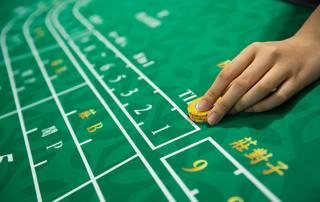 Macau casino GGR US$1.5bln for Apr 1 to 21: JP Morgan April 22, 2024
Macau casino GGR US$1.5bln for Apr 1 to 21: JP Morgan April 22, 2024



